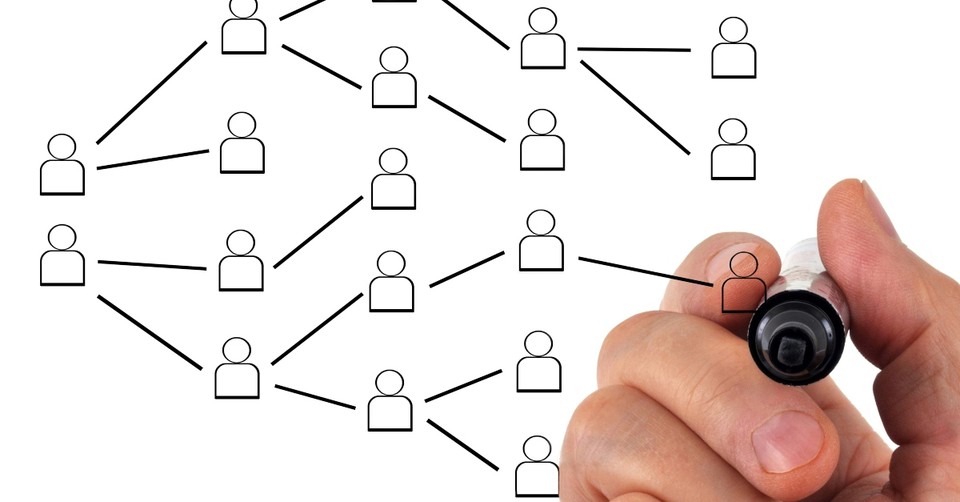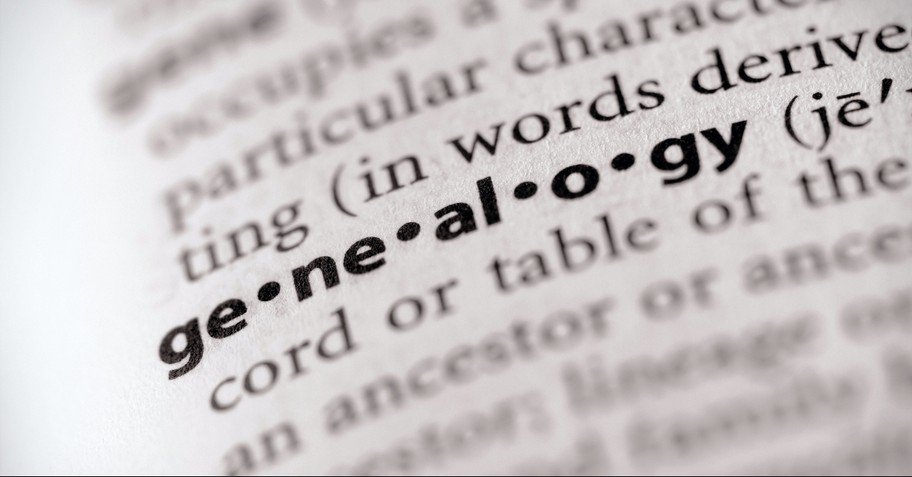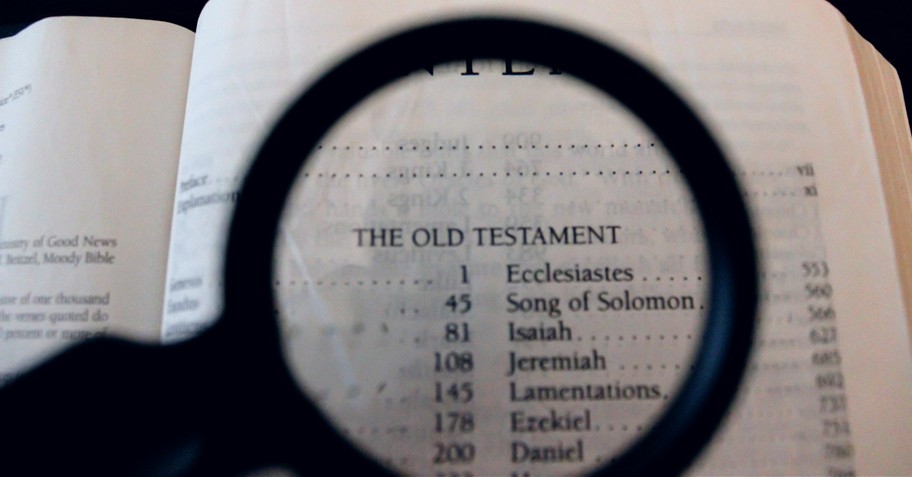12 Lessons from the Genealogies in the Bible

Reading the Old Testament, will at some point, bring us to parts that our eyes want to skim over because we may start to nod off. But if we take the time to examine the lists of tribes, divisions, and begets, we can glean some nuggets of information usually missed.
We may wonder why the Bible is so detailed about the genealogies laid out in Scripture. God didn’t put all those unpronounceable names on the scrolls to take up space. His Word had a purpose then and now.
The prophecy given in the Garden of Eden stated that the Seed who would redeem mankind would descend from a nation the Lord established. The records kept of the kings who reigned over Israel and Judah revealed they were all Hebrews who came from Abraham and not a foreigner.
Judah was the chosen tribe to produce the coming Messiah. These thorough records left no doubt that Jesus Christ was the Son of David as the prophecy foretold.
Here are 12 lessons we can learn from the genealogies in the Bible:
Photo Credit: ©Getty Images-Richard Villalonundefined undefined
1. Lamech Was the First Polygamist
Lamech was one of Cain’s descendants. He is the first recorded man to transgress the ideal of marriage laid out in the Garden of Eden by taking more than one wife. God told Adam that man would leave his father and mother to become one with his wife (Genesis 2:24). The fact that Lamech decided to have more than one mate is another indication of the results of the fall of man. People decided to do whatever they wanted to do.
Then Lamech married two women, one named Adah and the other Zillah. (Genesis 4:19 NIV)
2. Women Were Granted an Inheritance in the Promised Land
We read of inheritances granted through the naming of sons and don’t consider that women were also given rights. Zelophehad had no sons; therefore, the rights to property were granted to his daughters so they were not left destitute. And the fact that each woman is named gives them credibility in the Torah record.
Now Zelophehad son of Hepher, the son of Gilead, the son of Makir, the son of Manasseh, had no sons but only daughters, whose names were Mahlah, Noah, Hoglah, Milkah and Tirzah. They went to Eleazar the priest, Joshua son of Nun, and the leaders and said, “The Lord commanded Moses to give us an inheritance among our relatives.” So Joshua gave them an inheritance along with the brothers of their father, according to the Lord’s command. (Joshua 17:3-4)
We can be glad these names are not some we use today. I don’t know of anyone who would enjoy being called Hoglah!
3. Abraham Had More Sons after Sarah Died by His Other Wife, Keturah
We focus so much on Isaac and Ishmael we can forget that Abraham married again and had other children. The promise God gave him that his descendants would be like the stars in the sky started here as all his offspring spread out across the earth.
The sons born to Keturah, Abraham’s concubine: Zimran, Jokshan, Medan, Midian, Ishbak and Shuah. (1 Chronicles 1:32 NIV)
4. The Results of Wickedness
Lots of evil people are spoken of in scripture but for this one to be singled out means Er must have been more wicked than anyone else for the Lord to kill him. This reveals how the evils of sin can contaminate a person.
The sons of Judah: Er, Onan and Shelah. These three were born to him by a Canaanite woman, the daughter of Shua. Er, Judah’s firstborn, was wicked in the Lord’s sight; so the Lord put him to death. (1 Chronicles 2:3)

5. A Man Overcame the Meaning of His Name
The prayer of Jabez was the subject of a famous book years ago. His words inserted into the records tell of a man who didn’t give in to the legacy of a painful name’s meaning.
We can see how God can rescue us from a negative legacy when trust is placed in Him.
Jabez was more honorable than his brothers. His mother had named him Jabez, saying, “I gave birth to him in pain.” Jabez cried out to the God of Israel, “Oh, that you would bless me and enlarge my territory! Let your hand be with me, and keep me from harm so that I will be free from pain.” And God granted his request. (1 Chronicles 4:9-10)
6. The Reason Reuben Lost His Birthright
Israel’s firstborn transgressed by having a sexual relationship with Bilhah, his father’s concubine (Genesis 35:22). Because of this, he lost the rights that would normally be bestowed on the oldest son.
The consequences of sin are exposed in biblical characters throughout history with painful examples such as this one.
The sons of Reuben the firstborn of Israel (he was the firstborn, but when he defiled his father’s marriage bed, his rights as firstborn were given to the sons of Joseph son of Israel; so he could not be listed in the genealogical record in accordance with his birthright). (1 Chronicles 5:1)
7. Battles are Won When God Leads
The results of a conflict the Reubenites, Gadites, and half-tribe of Manasseh fought was victorious because they called out to God during the fight.
We do see other miraculous victories for Israel and Judah in Scripture, but this one is declared in the division of the tribes and stands out to remind us that God is the one who fights our battles.
They waged war against the Hagrites, Jetur, Naphish and Nodab. They were helped in fighting them, and God delivered the Hagrites and all their allies into their hands, because they cried out to him in battle. He answered their prayers, because they trusted in him. (1 Chronicles 5:10-20)
Photo Credit: ©iStock/Getty Images Plus/firebrandphotography
8. Other Scripture Is Fulfilled
We can see how the principle stated in Proverbs 13:22 played out. The wealth of the wicked was laid up for the righteous. Many victories resulted in a collection of spoils during the wars Israel fought. The number of livestock specified in this verse shows us how profitable their win was.
They seized the livestock of the Hagrites—fifty thousand camels, two hundred fifty thousand sheep and two thousand donkeys. (1 Chronicles 5:21)
9. The Reason Some Tribes went into Exile
The Israelites were warned numerous times about the consequences of turning from God to worship idols. Prophets proclaimed judgment would fall upon them if they continued in the vile sins against Jehovah. We learn of these in other Scriptures, but for the Lord to emphasize their degeneration again through the listing of their tribes conveys how detestable their actions were to Him.
The unfaithfulness of the Reubenites, Gadites, and half-tribe of Manasseh is listed only a few verses after they won an altercation because they called upon the name of the Lord. This can also show us how quickly sin can take root when exposure to ungodliness is allowed.
But they were unfaithful to the God of their ancestors and prostituted themselves to the gods of the peoples of the land, whom God had destroyed before them. So the God of Israel stirred up the spirit of Pul king of Assyria (that is, Tiglath-Pileser king of Assyria), who took the Reubenites, the Gadites and the half-tribe of Manasseh into exile. (1 Chronicles 5:25-26)
10. Women Built Cities
The men of Gath killed Ephraim’s sons when they tried to steal cattle. Ephraim had another son named Beriah, whose name means tragedy.
Beriah had a daughter who built regions. This woman must have been exceptional in leadership and business to found cities and be given credit for her work among the names of her brothers. Her resourcefulness shows the importance of a woman’s contribution to settling the lands.
His daughter was Sheerah, who built Lower and Upper Beth Horon as well as Uzzen Sheerah. (1 Chronicles 7:24)

11. A Man Separated for a Blessing
Obed-Edom also had sons... (for God had blessed Obed-Edom). (1 Chronicles 26:4-5)
We can find out why Obed-Edom was blessed by referring to 2 Samuel 6:11.
The ark of the Lord remained in the house of Obed-Edom the Gittite for three months, and the Lord blessed him and his entire household.
12. Women Are Cited in the Genealogy of the Messiah
Four women are mentioned in the line of the Messiah, and they all had questionable reputations. This shows us how the redemptive plan God had for mankind didn’t exclude anyone. All He requires is repentance and trust.
Tamar: Judah, the father of Perez and Zerah, whose mother was Tamar. (Matthew 1:3)
Rahab: Salmon, the father of Boaz, whose mother was Rahab. (Matthew 1:5a)
Ruth: Boaz the father of Obed, whose mother was Ruth. (Matthew 1:5b)
Bathsheba: David was the father of Solomon, whose mother had been Uriah’s wife. (Matthew 1:6)
The genealogies of Jesus differ in some ways in Matthew and Luke’s accounting. These are not discrepancies. Although both use Joseph’s name, the tradition in that time was to trace ancestry back to the father. The heritage in Matthew is Joseph’s line, even though Joseph’s bloodline didn’t enter Jesus’ body. The background in Luke traces Mary’s family history by using Joseph as Jesus’ supposed father.
Joseph’s roots contain heritage from Jeconiah, and Jeremiah prophesied that no descendant of Jeconiah would sit on the throne of David because of Jeconiah’s wickedness (Jeremiah 22:24-30).
A New Way to View Genealogies
If we can learn to view the genealogies in the Bible as an exploration of history and an adventure in discovering more about biblical saints, we may find out they are not as boring as we thought.
Because the Lord included these meticulous details in His Word, there can be no doubt that Jesus’ birth fulfilled the prophecy concerning His right to the throne of Israel. And we can learn from the mistakes some characters made while observing the rewards that came from obedience.
These things happened to them as examples and were written down as warnings for us, on whom the culmination of the ages has come. (1 Corinthians 10:11)
Everything in God’s Word is for our benefit and training. We can avoid a lot of pain when we listen to Him instead of attending the school of hard knocks.
Photo Credit: iStock/Getty Images Plus/JerryGrugin
Originally published June 22, 2022.






